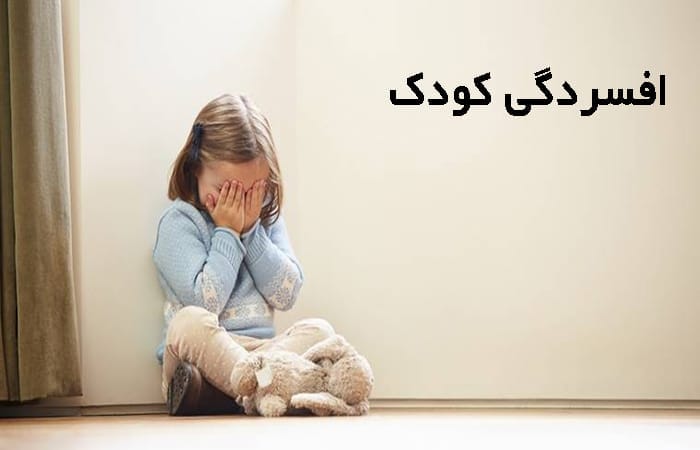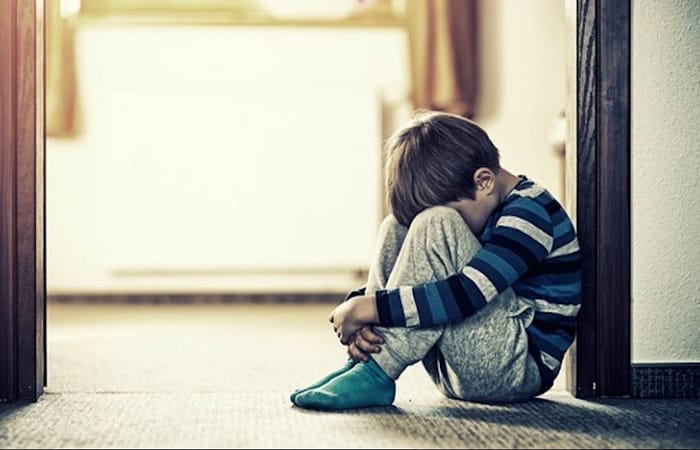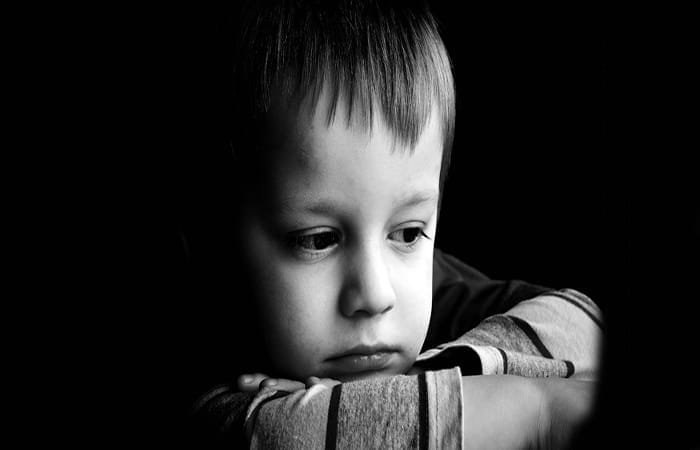
Blog
Child depression

When a child faces depression, they experience overwhelming and distressing emotions. It is important to know that depression is a treatable medical condition, and there are ways you can help your child recover from and overcome depression. Depression is more than just a bad mood – it is a period of intense irritability, severe hopelessness, anger, or rage that can last for weeks, months, or longer. These feelings can make normal functioning difficult for children and adolescents, making it hard to get through the day or enjoy activities they usually like.
فهرست عناوین
ToggleDefinition of Depression
Depression is a type of mood or “affective” disorder. Major depression goes far beyond the usual sadness a child might experience. Major depression is a state where the child is persistently sad or irritable, affecting how they think and behave at home, school, and with peers.
The National Institute of Mental Health estimates that over 10% of adolescents aged 12 to 17 experience major depression in a given year. Depression is increasing among both children and adolescents. Early onset of depression in childhood and adolescence can predict depression in adulthood. Early and consistent treatment can help reduce the risk of relapse, lessen symptom severity, and improve functioning.

Causes of Childhood Depression
Depression involves a combination of causes such as genetics, environment, and psychological factors. Depression has a strong genetic component, as it can be passed down from generation to generation. However, children do not always develop depression just because their parents have it. Many children become depressed even when there is no family history of the disorder. Children are also at higher risk for depression if they experience environmental stress such as abuse, neglect, emotional trauma, significant changes or losses, family conflicts, issues with parents, or peer problems such as bullying or lack of attention and affection. Additionally, children with chronic medical illnesses or other behavioral health disorders, such as anxiety, are at increased risk of depression.
Symptoms and Signs of Childhood Depression
Each child may experience symptoms of major depression differently. To be diagnosed with major depression, a child must show at least one of the following two symptoms on most days (for most of the day) during a two-week period:
- Persistent feelings of sadness, unhappiness, or irritability
- Loss of interest and pleasure in almost all activities that they previously enjoyed
In addition, several of the following symptoms must be present: - Feelings of hopelessness, helplessness, and inability
- Low self-esteem
- Feelings of inadequacy and unworthiness
- Excessive guilt
- Relationship problems or social withdrawal
- Sleep disturbances, including sleeping too much or too little
- Changes in appetite or weight
- Decreased energy
- Difficulty concentrating or decline in school performance
- Increased sensitivity to failure or rejection
- Indecisiveness
- Frequent physical complaints, such as headaches, stomachaches, or fatigue
- Thoughts or wishes of death
- Suicidal thoughts or attempts
It is extremely important to remember that symptoms of depression and suicidal thoughts or behaviors must be taken very seriously.
Diagnosing Childhood Depression
If you think your child is suffering from major depression, talk to your child’s pediatrician or seek a therapist or psychiatrist who specializes in children and adolescents. Accurate diagnosis and early treatment are key to successfully managing major depression. Depression can also occur alongside other behavioral health disorders such as substance abuse or anxiety disorders. Given the complexity often involved in diagnosing and treating depression, it is important to find a highly trained specialist, such as a pediatrician, licensed clinical social worker, child psychologist, or an experienced child and adolescent psychiatrist.

Diagnosing Childhood Depression
If you think your child is suffering from major depression, talk to your child’s pediatrician or seek a therapist or psychiatrist who specializes in children and adolescents. Accurate diagnosis and early treatment are key to successfully managing major depression. Depression can also occur alongside other behavioral health disorders such as substance abuse or anxiety disorders. Given the complexity often involved in diagnosing and treating depression, it is important to find a highly trained specialist, such as a pediatrician, licensed clinical social worker, child psychologist, or an experienced child and adolescent psychiatrist.
Treatment of Childhood Depression
Early treatment is essential to reduce distress, improve functioning, and prevent future depressive episodes. Without treatment, your child’s depression will last longer and become increasingly severe, leading to significant impairment at school, home, and among friends and family.
A specialist will design an individualized treatment plan based on your child’s symptoms and other personal factors. The treatment plan may include:
Evidence-Based Individual Therapy
Cognitive-Behavioral Therapy (CBT): This therapy helps your child change distorted views about themselves and the world, engage in activities that promote positive mood, and use their strengths to solve problems and cope effectively.
Read more about: Cognitive Behavioral Therapy
Interpersonal Therapy (IPT): This therapy helps your child reduce depressive symptoms by learning skills to improve communication, resolve problems, manage social interactions, and cope with relationship-related stress.
Family Therapy
Parental support is crucial in helping the child learn to manage their mood and life. Family therapy can also address family dynamics or situational stressors that contribute to your child’s depression.
Medication
Antidepressant medication can be very effective in treating moderate to severe depression, especially when combined with individual or family therapy.
Most children who receive early and effective treatment for major depression improve and may even experience full remission of symptoms. Children with more severe episodes of depression, as well as co-occurring disorders (such as substance use, anxiety, or emotional disorders), may need to continue working with treatment providers for longer periods. Some children experience recurrent depression that can come and go throughout their lives. These children benefit from periodic re-engagement in treatment when symptoms reappear.
Treatment and the Child
Depending on your child’s individualized treatment plan, your child and family may continue to meet with treatment providers until the symptoms of depression improve or are under control. Follow-up visits may be recommended to monitor your child’s progress and ensure ongoing well-being. Treatment also allows your child to thrive at home, school, and in relationships. Your child can perform at their best without depression interfering with their thoughts, feelings, and behaviors.
برای مشاوره رایگان و رزرو وقت (یا اگر تماس گرفتید و قادر به پاسخگویی نبودیم) شماره تماس خود را وارد کنید. ما به زودی با شما تماس می گیریم!



